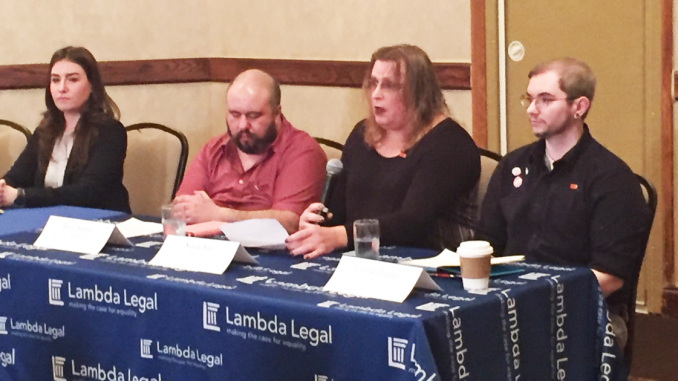
- Four transgender people residing in Ohio filed a lawsuit against the state due to an existing policy that prohibited them from updating the gender marker on their birth certificate.
- The policy, according to Melissa Alexander of TransOhio, has not been always the way it was until a decade ago.
- The plaintiffs also shared their harrowing experiences of threats, harassment and embarrassment because of the consequences of the policy.
The state of Ohio is sued for failing to issue birth certificates that would reflect the gender identity of transgender people.
According to transgender top stories published by WOSU Public Media website on March 30, four transgender people residing in Ohio had filed a lawsuit against the state due to an existing policy that prohibited them from updating the gender marker on their birth certificate.
Gender identity and public documents
The federal case, filed in the United States District Court in Columbus by the civil rights group American Civil Liberties Union ACLU) and Lambda Legal, claimed that the state government blocked people from changing their gender found on birth certificates.
Specifically, it specified that the said policy contrasted with the ability of people born in the state to change their gender on other government-issued documents such as the driver’s license, password, and social security number.
The ACLU said that the state is one of the three other states in the U.S. that has yet to update official policies regarding birth certificates of transgender citizens, along with Tennessee and Kansas.
Consequences of the policy
The plaintiffs also shared their harrowing experiences because of the consequences of the policy. One of them, Stacie Ray, claimed that she was humiliated, harassed and threatened with physical assault.
“I was referred to as the freak and the female coworker said if she ever encountered me in the women’s restroom that she would beat me up,” Ray said after a human resource employee divulged publicly that her gender on her birth certificate did not match the gender marker on her driver’s license and other legal documents.
Conservative groups have given their views on the issue. Aaron Baer, a member of the Citizens for Community Values, said that while his organization did not condone the negative experiences Ray underwent, the ACLU’s actions meant that it would disregard medical accuracy in favor of political ideology.
Baer explained, “What they are trying to force the state to do here is falsify medical records.”
Department of Health has refused to comment regarding the lawsuit and the Ohio Attorney General’s office stated that they are currently reviewing the case.
More details from WYTV website revealed that Ray was a truck driver in Columbus and said that the harassment occurred after an orientation meeting where she had to explain the discrepancy between the gender found on her birth certificate and other driver’s license.
Furthermore, Basil Argento said that the policy cost him thousands of dollars for his inability to change document upon applying for an Italian citizenship. The mismatch of gender between public documents caused months of delay.
He also sent the Department of Health a certified letter from a court in California, but has yet to receive any response.
“They have stated to me on the phone that they would never correct the gender on my birth certificate under any circumstances,” he shared.
The policy, according to Melissa Alexander of TransOhio, has not been always the way it was until a decade ago.
The director of Ohio Department of Health, Lance Himes, was named defendant of the suit.



Be the first to comment